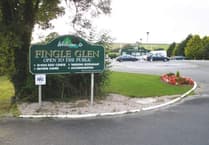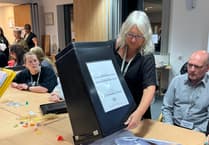RESIDENTS who don’t put recyclable waste into the correct bins are costing Devon nearly £4 million.
The total amount spent collecting black bin waste for Devon County Council has hit £16 million, but a quarter of that (£3.9 million) could have been avoided if recyclable waste hadn’t been included with household rubbish.
Wendy Barratt, the county’s waste manager, said the issue is also blighting Torbay, where more than half of its £3.6 million waste collection bill – £2 million – could have been saved if residents had correctly recycled their rubbish.
Disposing of waste is more costly than recycling, which pushes charges up for councils.
An analysis of the Devon authority’s waste showed 41 per cent could have been recycled, a figure that rose to 58 per cent in Torbay.
Councillors at Devon’s strategic waste authority recently heard that inflation had pushed the cost of waste service contracts up by eight per cent in the last financial year, and 13 per cent in the current one.
Ms Barratt said Devon is set to have the second-best recycling rates of any authority nationally, and that its shared scheme had led to collective savings of £6.7 million among five district councils.
Teignbridge District Council, Mid Devon District Council, North Devon District Council, Torridge District Council and East Devon District Council participate to achieve cost reductions.
Elsewhere, Ms Barratt said that Mid Devon and Torbay improved recycling rates in 2022, whereas Devon’s other authorities either saw small drops or flat levels.
Darren Beer, operations manager for Streetscene and open spaces at Mid Devon, said they had witnessed a four-and-a-half percentage point rise in its recycling rate, meaning 59 per cent of waste in the area is now recycled.
Its move to three-weekly bin collections had helped it reduce black bin waste, which fell by 1,500 tonnes last year.
Ms Barratt added that the cost of living crisis could be reducing the amount of waste from households, with all districts witnessing recent declines, and subsequent drops in collection costs.
She said that Devon’s target is for 400kg of waste per person per year, from the current 417 tonnes.
Julian Brazil (South Hams, Lib Dem) said he felt the council’s emphasis should be on waste reduction, rather than recycling.
“If we lose sight of the fact that waste per head is probably more important than recycling, or at least equally important, then I think we are doing things the wrong way round,” he said.
“We should be congratulating authorities that produce less waste per head, and I would like to see in future presentations the reasons why certain authorities have been able to reduce waste more than others.”
Ms Barratt said Devon had retained a waste per head target despite there being no national government target, with Downing Street more focused on recycling rates.
Bradley Gerrard
LDRS





Comments
This article has no comments yet. Be the first to leave a comment.